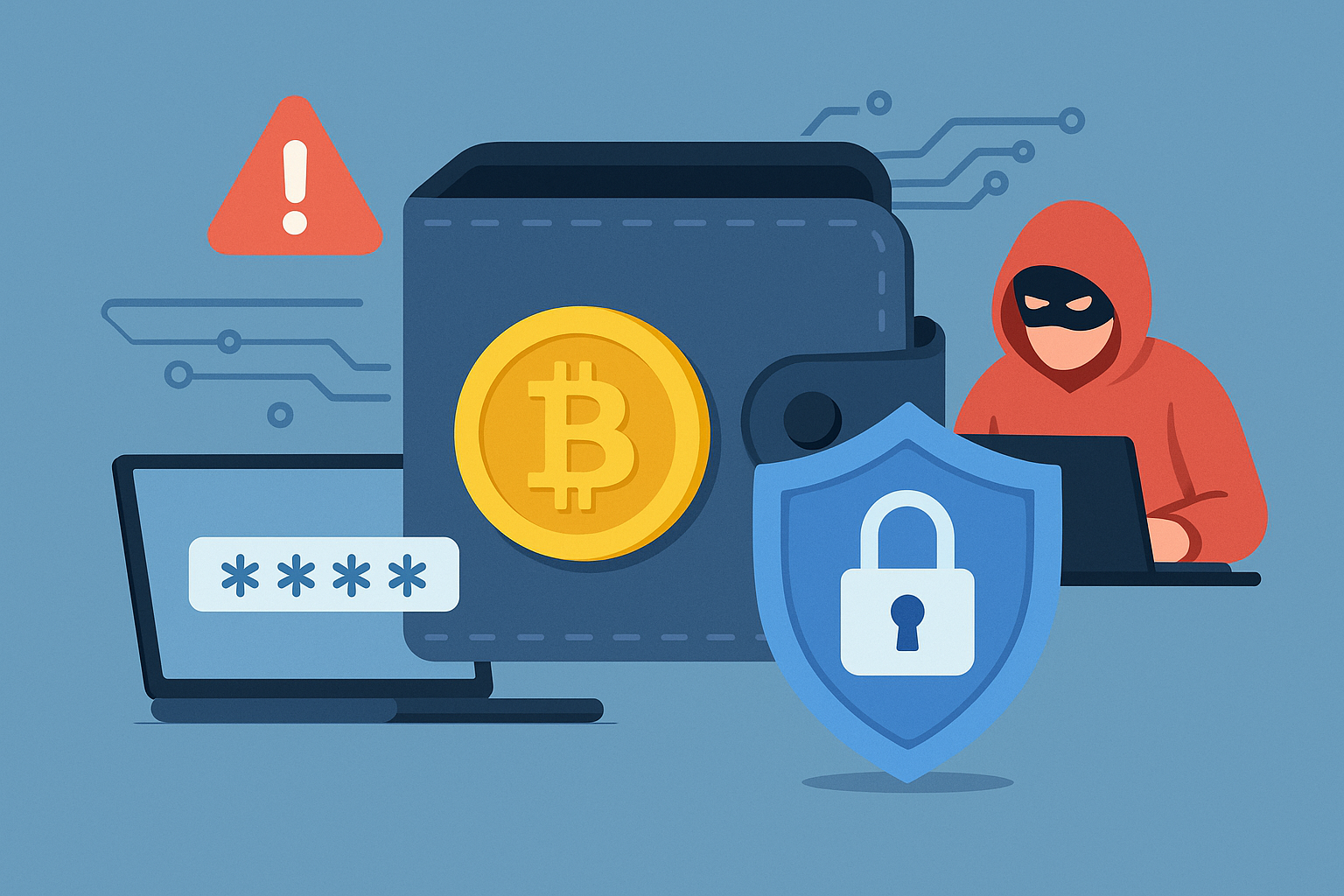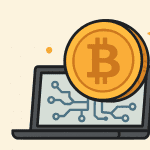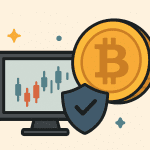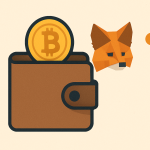If you own cryptocurrency, keeping it safe is very important. Just like a physical wallet holds your cash, a crypto wallet holds your digital coins. But unlike a real wallet, crypto wallets are online — and that means they can be hacked.
In this guide, we’ll show you easy steps to protect your wallet, avoid scams, and stay safe in the crypto world. This article is perfect for beginners.
Contents
- 1 What Is a Crypto Wallet?
- 2 Why Do Hackers Target Crypto Wallets?
- 3 1. Use a Strong Password
- 4 2. Enable Two-Factor Authentication (2FA)
- 5 3. Use a Hardware Wallet for Big Amounts
- 6 4. Watch Out for Phishing Scams
- 7 5. Backup Your Wallet and Seed Phrase
- 8 6. Keep Your Software Updated
- 9 7. Be Careful with Public Wi-Fi
- 10 8. Use Trusted Platforms Only
- 11 9. Don’t Share Too Much Online
- 12 Conclusion
- 13 Share a link:
- 14 Like this:
What Is a Crypto Wallet?
A crypto wallet is a tool that lets you store, send, and receive cryptocurrency. There are two main types:
-
Hot Wallets – These are connected to the internet (e.g. mobile apps, browser extensions).
-
Cold Wallets – These are offline wallets (e.g. hardware devices or paper wallets).
Hot wallets are easier to use, but cold wallets are safer for long-term storage.
Why Do Hackers Target Crypto Wallets?
Crypto is digital and can be sent easily — once a hacker gets access, they can steal your funds fast. There is no way to reverse a crypto transaction. That’s why hackers use:
-
Fake websites
-
Phishing emails
-
Malware
-
Social engineering (tricking you into giving private info)
1. Use a Strong Password
Always use a unique, strong password for your wallet and exchange accounts. A good password should be:
-
At least 12 characters
-
A mix of letters, numbers, and symbols
-
Not reused from other websites
Use a password manager to store your passwords securely.
2. Enable Two-Factor Authentication (2FA)
2FA adds another layer of protection. Even if someone knows your password, they can’t log in without a second code.
Best 2FA methods:
-
Authenticator apps (like Google Authenticator or Authy)
-
Hardware keys (like YubiKey)
Avoid SMS 2FA if possible — phone numbers can be hacked too.
3. Use a Hardware Wallet for Big Amounts
If you hold a lot of crypto, move it to a cold wallet like:
-
Ledger Nano S/X
-
Trezor
-
SafePal
These wallets are offline and almost impossible to hack remotely. You can connect them only when you need to send crypto.
4. Watch Out for Phishing Scams
Phishing is when hackers try to trick you into giving your wallet info.
How to stay safe:
-
Never click on links from unknown emails or messages
-
Always check the URL of websites before logging in
-
Bookmark the real site (e.g. binance.com) and use that only
-
Don’t download random files or browser extensions
5. Backup Your Wallet and Seed Phrase
When you create a wallet, it gives you a recovery phrase (usually 12 or 24 words). This is the only way to recover your wallet if you lose your phone or device.
Tips:
-
Write your seed phrase on paper and store it in a safe place
-
Never take a photo or save it on your computer or cloud
-
Do not share it with anyone — ever
If someone gets your seed phrase, they can steal all your crypto.
6. Keep Your Software Updated
Always update:
-
Wallet apps
-
Browser extensions
-
Phone or computer software
Updates fix bugs and close security holes that hackers could use.
7. Be Careful with Public Wi-Fi
Don’t use public Wi-Fi for crypto transactions. Hackers can spy on you.
If you must use it, always use a VPN (Virtual Private Network) to protect your connection.
8. Use Trusted Platforms Only
Stick to well-known and trusted apps and exchanges. Examples:
Before downloading a wallet app, check reviews and official websites.
Avoid talking about your crypto holdings on social media. Hackers and scammers often target people who show off their crypto online.
Keep your wallet info and balances private.
Conclusion
Your crypto is only as safe as your wallet. Hackers are smart, but with simple steps like using 2FA, avoiding phishing scams, and keeping your recovery phrase private, you can protect your digital money.
Whether you’re just starting or already holding coins, security should always come first. Follow the tips above and keep your crypto safe.




